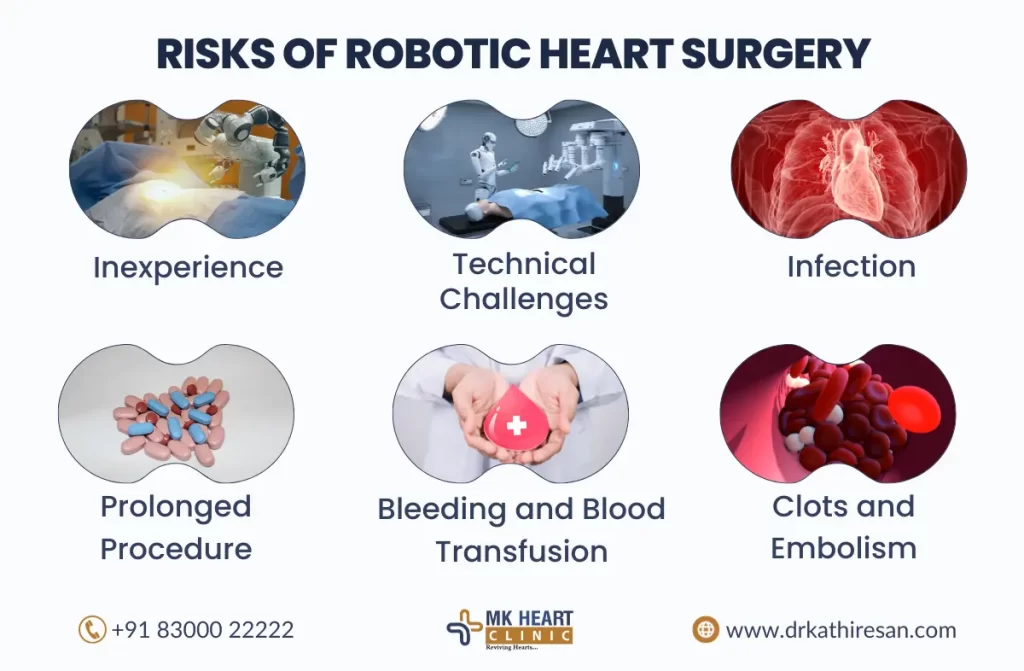Robotic minimal access bypass surgery in Chennai offers cutting-edge medical technology for cardiovascular patients. Utilizing advanced robotic systems, skilled surgeons perform minimally invasive procedures, reducing recovery time and post-operative discomfort. This innovative approach enhances precision and patient outcomes, making Chennai a leading destination for cardiac care in India.
What is Robotic Minimal Access Bypass Surgery?
Robotic minimal access bypass surgery in Chennai is an advanced surgical technique that combines the precision of robotic technology with minimally invasive approaches to perform coronary artery bypass grafting (CABG). In this procedure, a robotic surgical system, controlled by a highly skilled surgeon, is employed to create new pathways for blood flow around blocked or narrowed coronary arteries.
Unlike traditional open-heart surgery, robotic minimal-access bypass surgery involves smaller incisions, reduced trauma to the chest, and a quicker recovery period for the patient.
Causes of Robotic Minimal Access Bypass Surgery
Robotic Minimal Access Bypass Surgery in Chennai, often referred to as robot-assisted minimally invasive coronary artery bypass surgery (CABG), is a cutting-edge medical procedure that provides numerous benefits to patients with coronary artery disease. Several factors and reasons drive the adoption of this advanced approach to cardiac surgery.
- Minimally Invasive Approach: One of the key causes for choosing robotic minimal access bypass surgery is the minimally invasive nature of the procedure. Unlike traditional open-heart surgery, which requires a large incision and sternotomy (cutting the breastbone), minimally invasive surgery involves smaller incisions between the ribs. This results in less trauma to the chest, reduced pain, and quicker recovery times for patients.
- Precision and Accuracy: Robotic-assisted surgery offers unparalleled precision and accuracy. Surgeon’s control robotic arms equipped with miniature instruments and a high-definition camera, which allows for precise movements and a magnified view of the surgical site. This level of precision is particularly advantageous when working on delicate structures like the coronary arteries.
- Reduced Blood Loss: Another significant cause for choosing this approach is the reduced blood loss during the surgery. The robotic system provides enhanced visualization and control, minimizing the risk of excessive bleeding, which can be a concern in traditional open-heart surgery.
Who is the Right Doctor for Robotic Minimal Access Bypass Surgery?
Dr. M. Kathiresan is an experienced and highly skilled cardiac surgeon who is well-equipped to perform robotic minimal access bypass surgery with expertise and precision. His commitment to patient care, extensive knowledge, and proficiency in advanced surgical techniques make him an excellent choice for individuals seeking the best possible outcome in robotic-assisted coronary artery bypass surgery.
Dr. Kathiresan’s dedication to the well-being of his patients and his track record of success in cardiac surgery highlight his suitability as the right doctor for this advanced and minimally invasive surgical procedure.

Treatment for Robotic Minimal Access Bypass Surgery in Chennai
Treatment for robotic minimal access bypass surgery in Chennai involves a comprehensive approach to ensure the patient’s well-being and a successful surgical outcome. Here is an overview of the treatment process for this advanced cardiac procedure:
- Patient Evaluation: The treatment begins with a thorough evaluation of the patient’s medical history, current health status, and the extent of coronary artery disease (CAD). This assessment helps determine the suitability for robotic minimal access bypass surgery.
- Consultation with a Cardiac Specialist: Patients typically consult with a cardiac surgeon who is experienced in robotic-assisted procedures. The surgeon discusses the benefits, risks, and expectations of the surgery with the patient.
- Preoperative Preparations: Before the surgery, the patient may undergo various tests, such as cardiac imaging and blood work, to assess their overall health and pinpoint the exact location and severity of coronary artery blockages.
Benefits of Robotic Minimal Access Bypass Surgery
Robotic Minimal Access Bypass Surgery in Chennai, also known as robot-assisted minimally invasive coronary artery bypass surgery (CABG), offers a range of significant benefits for patients with coronary artery disease. This advanced surgical approach has gained popularity due to its ability to provide improved outcomes and enhanced patient experiences.
- Minimally Invasive Procedure: The surgery is minimally invasive, involving smaller incisions and reduced trauma to the chest compared to traditional open-heart surgery. This results in less pain, decreased scarring, and quicker recovery times for patients.
- Precision and Accuracy: Robot-assisted surgery allows for exceptional precision and accuracy. Surgeon’s control robotic arms equipped with miniature instruments and high-definition cameras, providing a magnified view of the surgical site. This level of precision is particularly advantageous when working on delicate structures like the coronary arteries.
- Reduced Blood Loss: The robotic system’s enhanced visualization and control contribute to reduced blood loss during the surgery. This decreases the need for transfusions and minimizes the risk of complications associated with excessive bleeding.
Risks of Robotic Minimal Access Bypass Surgery
Robotic minimal access bypass surgery in Chennai is a highly advanced and safe procedure; however, like any surgical intervention, it does carry certain inherent risks and potential complications. It’s important for patients to be aware of these risks and for surgeons to discuss them thoroughly during the pre-operative consultation. The risks of robotic minimal access bypass surgery may include:
- Infection: Although the risk of surgical site infections is lower in minimally invasive surgery compared to traditional open-heart surgery, there is still a possibility of infection at the incision sites or in the chest cavity.
- Bleeding: While robotic surgery generally results in less blood loss than open-heart surgery, there is still a risk of bleeding. Excessive bleeding may require transfusions or additional surgical intervention to address.
- Blood Clots: The formation of blood clots can be a concern after any surgery. These clots can potentially travel to other parts of the body and cause blockages, which can be life-threatening if they reach vital organs like the lungs (pulmonary embolism).
Procedures of Robotic Minimal Access Bypass Surgery
- Pre-Operative Evaluation:
- A thorough assessment, including medical history, imaging studies, and tests, to determine the patient’s suitability for the surgery.
- Discussion of risks, benefits, and expectations with the surgical team.
- Anesthesia Administration:
- The patient is placed under general anesthesia to ensure comfort and safety during the procedure.
- Small Incision Creation:
- Instead of the traditional large chest incision, the surgeon makes small incisions between the ribs, minimizing trauma.
- Robotic Surgical System Setup:
- The surgeon operates from a console using robotic arms equipped with specialized surgical instruments.
- Enhanced visualization through 3D magnification allows for greater precision.
- Harvesting of Grafts:
- The surgeon carefully harvests blood vessels, such as the internal mammary artery or saphenous vein, for use as grafts.
- Bypass Procedure:
- The robotic arms are used to place the grafts around the blocked arteries, restoring blood flow to the heart muscle.
- Closure and Recovery:
- Once the bypass is completed, the small incisions are closed, and the patient is moved to the recovery area for monitoring.
- Post-Operative Care:
- Patients typically experience less pain and a shorter hospital stay compared to traditional bypass surgery, allowing for quicker recovery.
Conclusion
robotic minimal access bypass surgery in Chennai represents a remarkable advancement in the field of cardiac surgery, offering numerous benefits to patients with coronary artery disease. This cutting-edge approach, facilitated by highly skilled surgeons like Dr. M. Kathiresan, provides a minimally invasive alternative to traditional open-heart surgery, resulting in reduced pain, quicker recovery, and improved overall patient outcomes.
Also, Read Best Interventional Cardiologist In Chennai.

